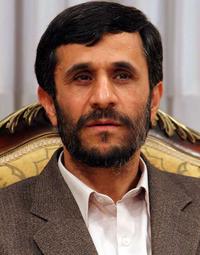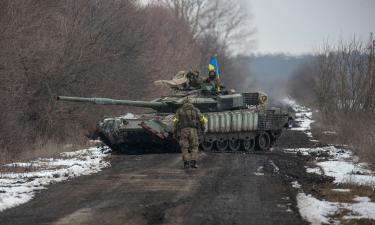Western powers to give Iran another chance
The United States, Britain and France were set to brief the U.N. Security Council on Wednesday on their proposed resolution that would give Iran another chance to curb its nuclear programme.

But the Western allies probably will not distribute a text that Russia and China still oppose. Moscow and Beijing fear it would be a step towards sanctions or even military action, although the draft will not threaten either measure.
"We will be explaining to the full council at that point where our thoughts are and what direction they will take," U.S. Ambassador John Bolton told reporters of the Wednesday afternoon council consultations.
He said it would be "helpful to apply greater pressure on Iran" so that all 15 members of the council, not just the Western powers, could give their views.
The plan is to introduce shortly a resolution under Chapter 7 of the U.N. Charter, making legally binding a March council statement that asked Iran to suspend uranium enrichment work -- a process that could be used for electricity generation or making an atomic weapon.
There would be a deadline for Iran to comply but the measure would not threaten any action. Chapter 7 allows for sanctions or even military action but a separate resolution is necessary to specify either step.
No vote has been scheduled. The text also will be under discussion at a meeting on Monday and Tuesday among the foreign ministers of Germany and the five permanent council members -- the United States, Britain, France, Russia and China.
Iran maintains its nuclear programme is legal and that it does not seek a bomb. It has accelerated uranium enrichment but is still far below the level needed to make an atomic bomb.
As a follow-up resolution, the Western allies have considered targeted sanctions to ratchet up the pressure in hopes of Russian and Chinese support if Iran continues to defy the council's demands.
These could include technology with civilian and military uses, a travel ban on Iranian officials and a possible ban on arms sales -- but not oil sanctions, said Nicholas Burns, the U.S. under-secretary of state for political affairs.
Still, fears that the dispute could lead to disruption of Iran exports pushed oil prices above $74 a barrel on Tuesday, close to the record of $75.35 touched last month.
Burns spoke in Paris where senior foreign ministry officials of the five permanent members and Germany held another strategy meeting on Iran on Tuesday, reports Reuters.
I.L.
Subscribe to Pravda.Ru Telegram channel, Facebook, RSS!





